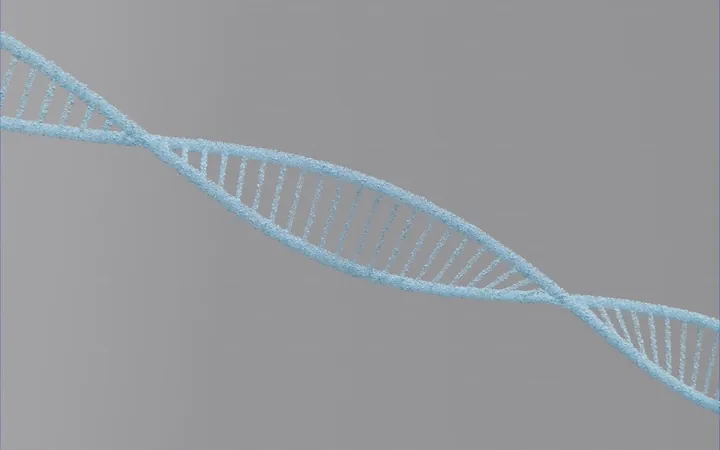
Unlocking the Secrets of Speech: How a Gene Swap in Mice Could Change Everything
2025-07-05
Author: Wei Ling
A Revolutionary Discovery in Language Origins
In an astonishing breakthrough, researchers have unveiled how a tiny genetic variation might have played a monumental role in the evolution of complex language abilities in Homo sapiens.
Meet the NOVA1 Gene: A Key Player in Communication
Focusing on the NOVA1 gene, essential for brain development and found across many animal species, scientists discovered a unique variant exclusive to humans. This specific version of the gene reportedly governs vocalization-related genes in remarkable ways. By experimenting with this human-specific NOVA1 gene in mice, they made an eye-opening observation: the altered communication patterns of these rodents.
A Surprising Twist in Mouse Communication
Professor Robert Darnell, the lead researcher from Rockefeller University, expressed his excitement, saying, "We thought, wow. We did not expect that. It was one of those really surprising moments in science." These genetically modified mice began producing higher-pitched squeaks and a different mix of vocal "letters" distinct from their ordinary counterparts. While typical baby mice generate ultrasonic squeaks that fall into four basic categories, the humanized mice exhibited a transformation in certain vocal elements, indicating a profound influence of the human gene on vocal behavior.
Mating Calls and Growing Differences
As the mice matured, their vocal distinctions became even clearer, especially evident in the male mice during mating calls, which became more diverse and rich. These vocal changes hint at how the human NOVA1 gene may have fundamentally shaped early language development by altering sound formation and perception.
An Evolutionary Advantage?
Intriguingly, this specific variant of the NOVA1 gene is absent in Neanderthals and Denisovans, our ancient human relatives. The research team highlighted an amino acid alteration, known as I197V, that could have given Homo sapiens a critical evolutionary advantage in communication.
Darnell commented, "This genetic change might have been crucial in allowing Homo sapiens to develop sophisticated communication skills, distinguishing them from other species. It raises the possibility that advanced communication gave our ancestors an advantage in survival and adaptation."
Implications Beyond Language
This groundbreaking study not only enhances our understanding of the genetic underpinnings of language but also opens new doors for medical research, particularly in the realms of neurological development and speech disorders. The implications of this discovery could be far-reaching, potentially leading to advancements in therapies that address communication challenges.

 Brasil (PT)
Brasil (PT)
 Canada (EN)
Canada (EN)
 Chile (ES)
Chile (ES)
 Česko (CS)
Česko (CS)
 대한민국 (KO)
대한민국 (KO)
 España (ES)
España (ES)
 France (FR)
France (FR)
 Hong Kong (EN)
Hong Kong (EN)
 Italia (IT)
Italia (IT)
 日本 (JA)
日本 (JA)
 Magyarország (HU)
Magyarország (HU)
 Norge (NO)
Norge (NO)
 Polska (PL)
Polska (PL)
 Schweiz (DE)
Schweiz (DE)
 Singapore (EN)
Singapore (EN)
 Sverige (SV)
Sverige (SV)
 Suomi (FI)
Suomi (FI)
 Türkiye (TR)
Türkiye (TR)
 الإمارات العربية المتحدة (AR)
الإمارات العربية المتحدة (AR)